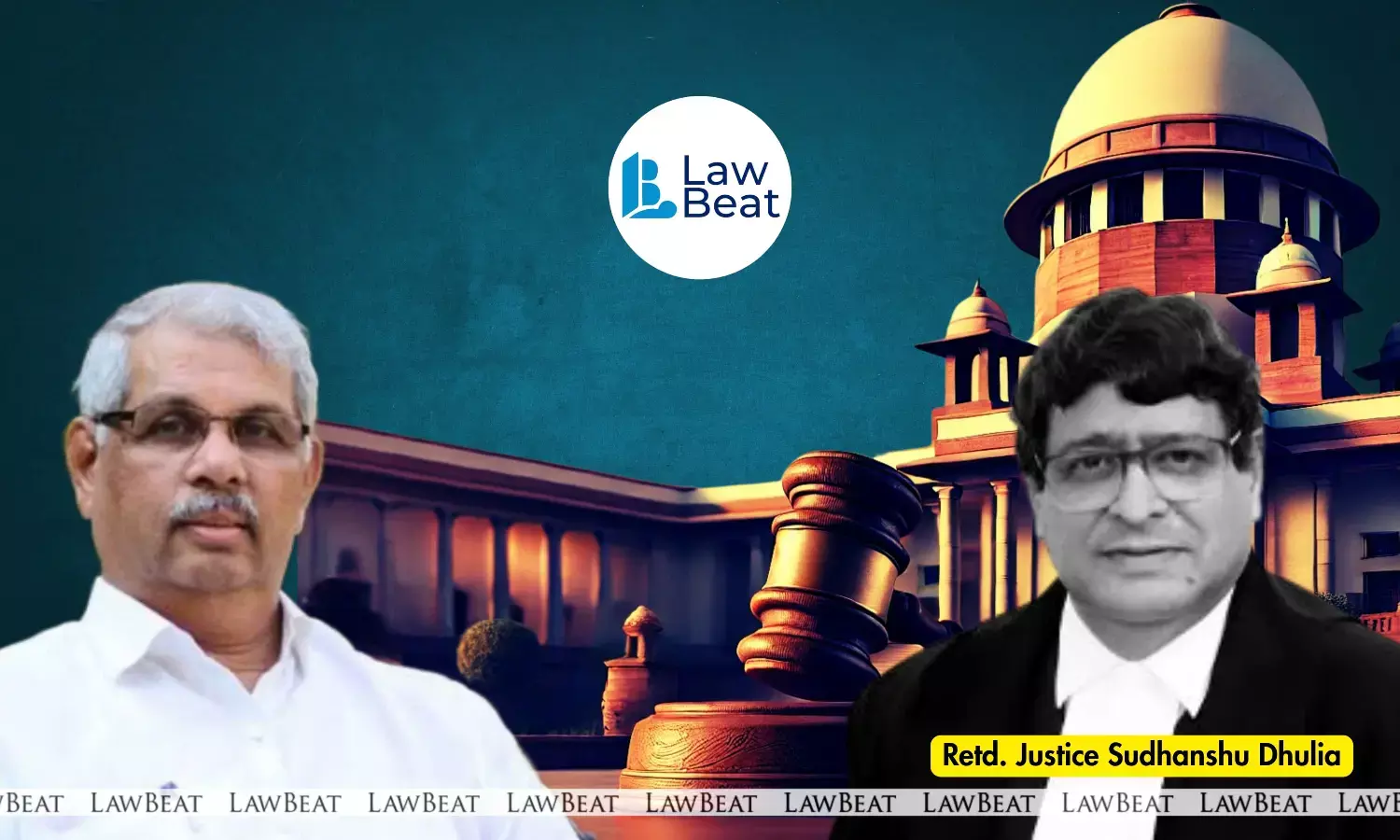VC Appointment Row: Why Haven’t You Acted on Justice Dhulia Report Yet? SC Raps Kerala Governor

SC records resolution of Kerala Vice-Chancellor appointment deadlock after intervention by Justice Sudhanshu Dhulia
The Supreme Court on Friday strongly criticised the Kerala Governor for holding up action on the report submitted by Justice (Retired) Sudhanshu Dhulia regarding the appointments of Vice Chancellors at APJ Abdul Kalam Technological University and the University of Digital Sciences, Innovation and Technology.
The Bench of Justice JB Pardiwala and Justice KV Viswanathan noted that the Governor, acting as Chancellor, is expected to take a decision without further delay on the committee’s recommendations.
The Court’s remarks came during proceedings reviewing the status of the report, which was submitted to address concerns over the legality and propriety of the recent VC appointments.
The Bench made it clear that the Governor cannot indefinitely postpone his decision, emphasising that the recommendations require timely consideration.
Previously in September, the Attorney General of India had mentioned before the Court an application filed by Kerala Governor Rajendra Arlekar seeking the removal of the Kerala Chief Minister from the Committee constituted for appointing regular Vice Chancellors of APJ Abdul Kalam Technological University and the University of Digital Sciences Innovation and Technology. The AG had cited a subsequent order in the West Bengal Governor matter, which restored the Governor’s authority as the appointing authority for Vice Chancellors, highlighting potential ambiguity in Kerala regarding who holds the final say in appointments. He requested that the application be considered before Justice (Retired) Sudhanshu Dhulia, head of the Committee, submits his recommendations.
Recently, the Kerala Governor had approached the Supreme Court seeking modification of its August 18 order on the process for appointing Vice Chancellors to two state universities. In his application, the Governor urged the Court to exclude the Chief Minister from the selection process, include a nominee of the University Grants Commission (UGC) in the search committee, and ensure that the Chancellor retains the discretion to choose from an alphabetical panel of shortlisted candidates. The plea argued that the Court’s earlier reliance on State of West Bengal v. Sanat Kumar Ghosh was misplaced, since unlike the Calcutta University Act, the Kerala University statutes do not provide any role for the Chief Minister or the State Government in V-C appointments. It further cited Prof. Dr. Sreejith v. Dr. Rajasree (2023), where the Court held that UGC Regulations prevail over conflicting state laws in V-C appointments.
On August 18, the Apex Court had appointed former judge of the Court, Justice Sudhanshu Dhulia, as the Chairperson of the Search and Selection Committee to appoint Vice Chancellors for two universities in Kerala; APJ Abdul Kalam Technological University and Kerala University of Digital Sciences, Innovation and Technology. The Bench, stressing that “students should not suffer,” had decided to end the deadlock by appointing Justice Dhulia as Chairperson. The Court clarified that the committee will have five members, comprising two nominees each from the lists provided by the Chancellor and the State, apart from the Chairperson. Justice Dhulia will have discretion to either constitute a common committee or separate committees for the two universities.
Earlier, on August 13, the Apex Court had said that it would itself constitute a Search Committee to oversee the process for appointing VCs to APJ Abdul Kalam Technological University and Kerala University of Digital Sciences, Innovation and Technology, after the State and the Chancellor failed to reach consensus on the issue.
The Kerala Governor’s petition challenges a July 14, 2025 judgment of the Kerala High Court that upheld the State’s reliance on Section 13(7) to justify temporary VC appointments. The Governor contends that such extensions violate UGC Regulations, which do not recognise the concept of temporary Vice-Chancellors and require strict adherence to academic eligibility norms.
On July 30, 2025, the Supreme Court had allowed the Governor to issue fresh temporary appointments within the six-month statutory limit but emphasised that both the Governor and the State must avoid politicising the matter, keep students’ interests at the forefront, and cooperate until regular appointments are finalised.
Case Title: The Chancellor, APJ Abdul Kalam Technological University v. State of Kerala & Ors.
Hearing date: November 28, 2025
